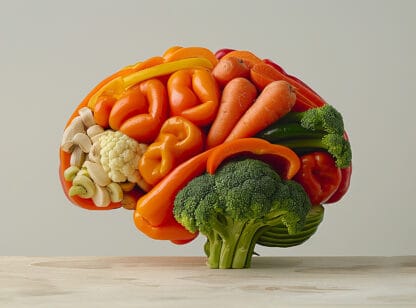The gut is intrinsically tied to our emotions. Experience tells us we can have a “gut wrenching” moment after seeing a traumatic event, or “butterflies” in our stomach on the first day of a new job. Another old adage we are told is “not to ignore our gut instinct.”
But is there truly a connection?
The enteric nervous system (ENS) is a complex system of nearly 100 million nerves in the lining of the gut. The ENS is often referred to as the “second brain” as it has many parallels, both chemically and structurally, to the brain. The ENS doesn’t conduct day-to-day decision making processes as does the brain; however, in an inexplicable harmony of hormones, neurotransmitters and electrical impulses, these “brains” communicate back and forth.
The brain and the gut are intricately connected and function as one system. Given that these two systems communicate, it has become apparent that both psychological and emotional factors can trigger symptoms in the gut, albeit there may be no obvious physical cause.
However, it is now widely believed that psychosocial factors do affect the physiology of the gut and can manifest as physical symptoms, including functional gastrointestinal disorders (FGIDs), a collection of about 20 chronic medical conditions affecting the gut.
In other words, psychological factors can impact physical factors such as the movement and contractions of the GI tract causing inflammation, pain, and other bowel symptoms.
As with brain stress, stress-reduction treatments can help prevent and treat gastrointestinal disorders.
Anxiety is a natural response to a perceived threat. The mind can perceive many different things as a threat; it may not be to life or limb, but can be something as innocuous as public speaking. Carrying the tension to a perceived threat engages the autonomic nervous system, placing the body on alert. The adrenal cortex releases stress hormones, the heart beats faster, breathing becomes rapid and the thyroid gland begins to stimulate the metabolism. This is called the “fight or flight” response, which over a period of time can produce malaise in the intestines such as inflammation, a leading cause of chronic disease.
When inflammation is present in the gut, an immune response is activated creating a protective layer of mucous. In the practice of detoxification, this mucous can often be seen during colon hydro-therapy sessions aimed at reducing inflammation while healing and hydrating the intestinal lining.
Hippocrates is credited for first saying that all disease begins in the gut.
Understanding that many of our daily lifestyle choices play a role in our overall wellness is the first step to healing the gut.
A whole-body pursuit to health care and stress reduction can show value in our well-being and quality of life. Making intestinal wellness a primary focus can increase overall longevity and well-being.
Cheryl Kane-Banke is a certified therapist with A Healthier You in Palm Desert which is owned and operated by Deb McMahon RN, CNHP. For more information call (760) 360-8877.











































Comments (0)